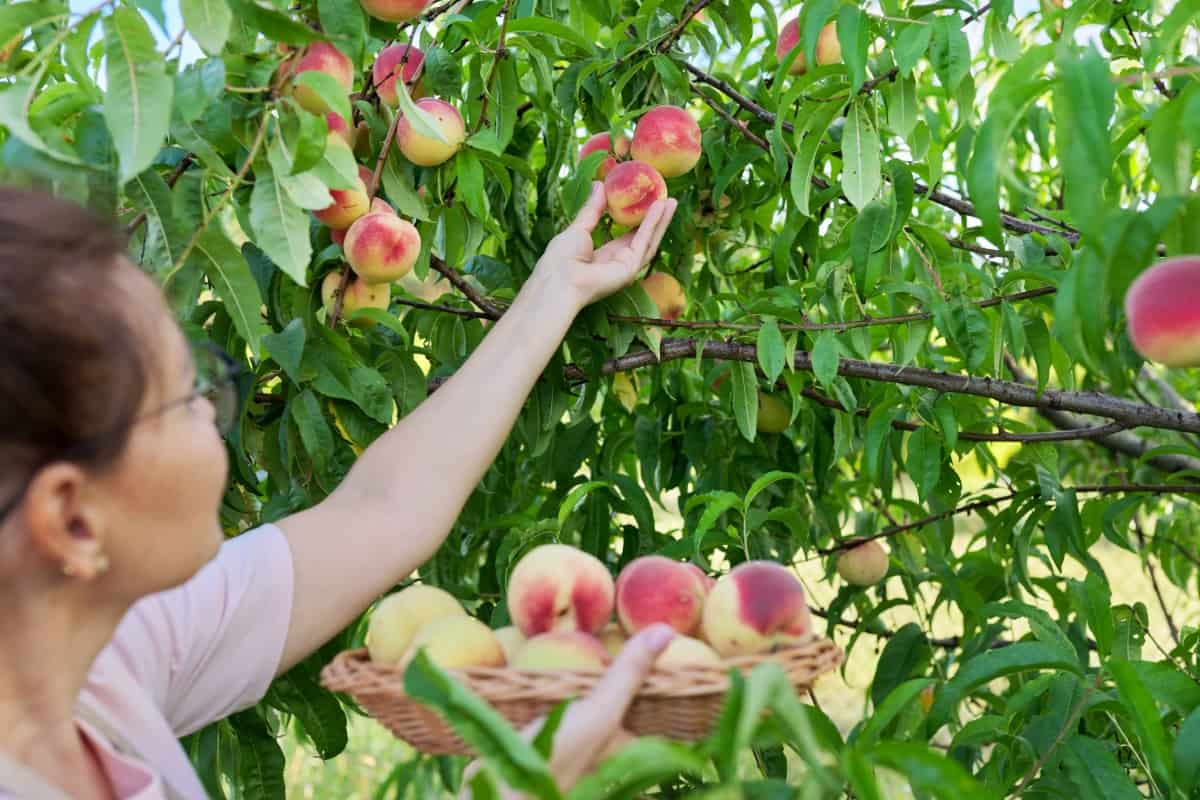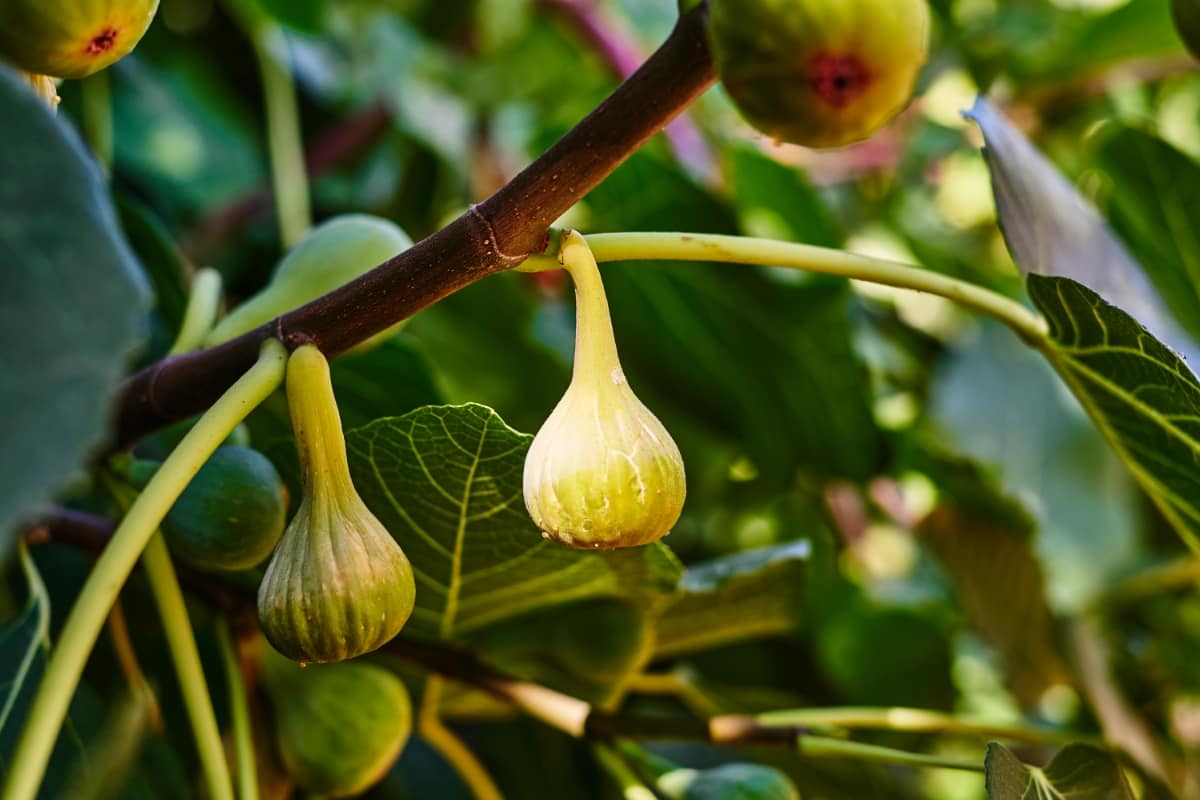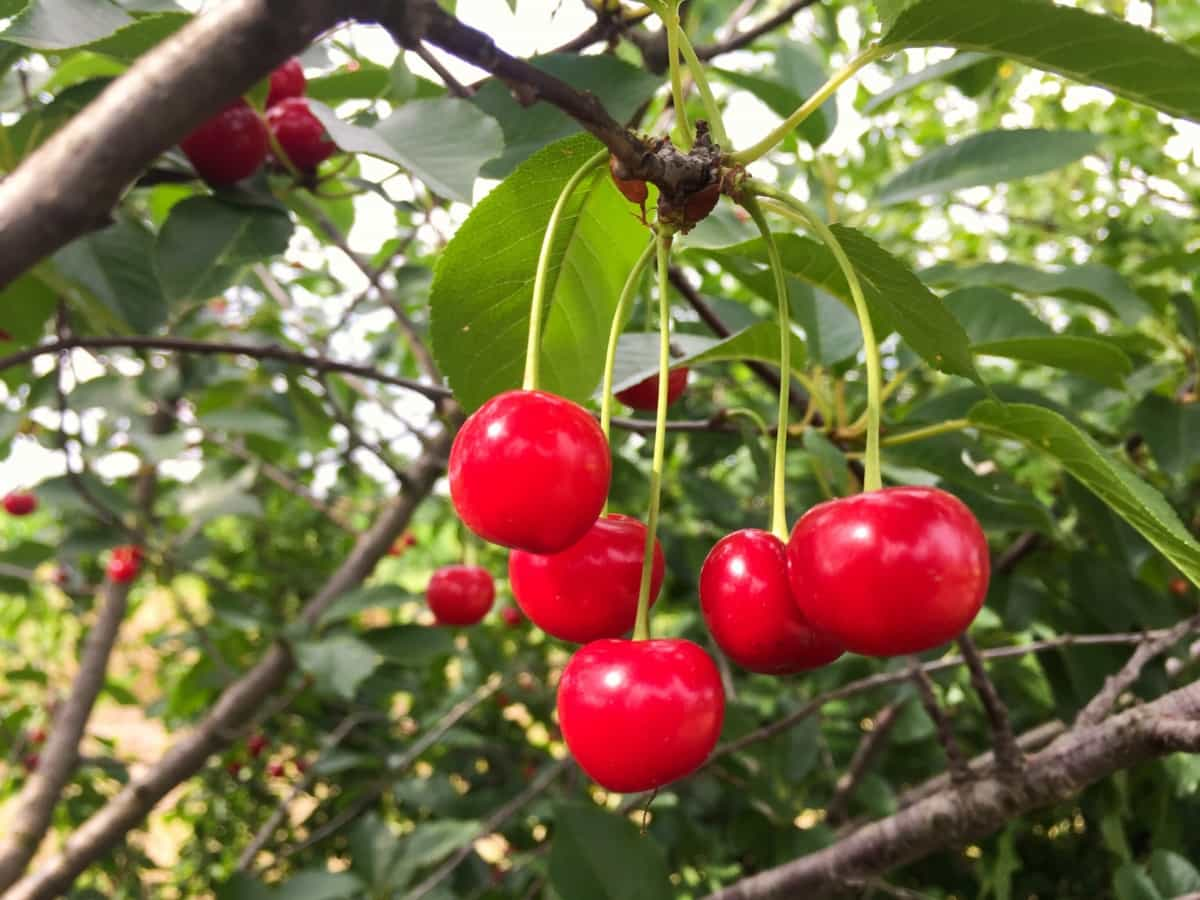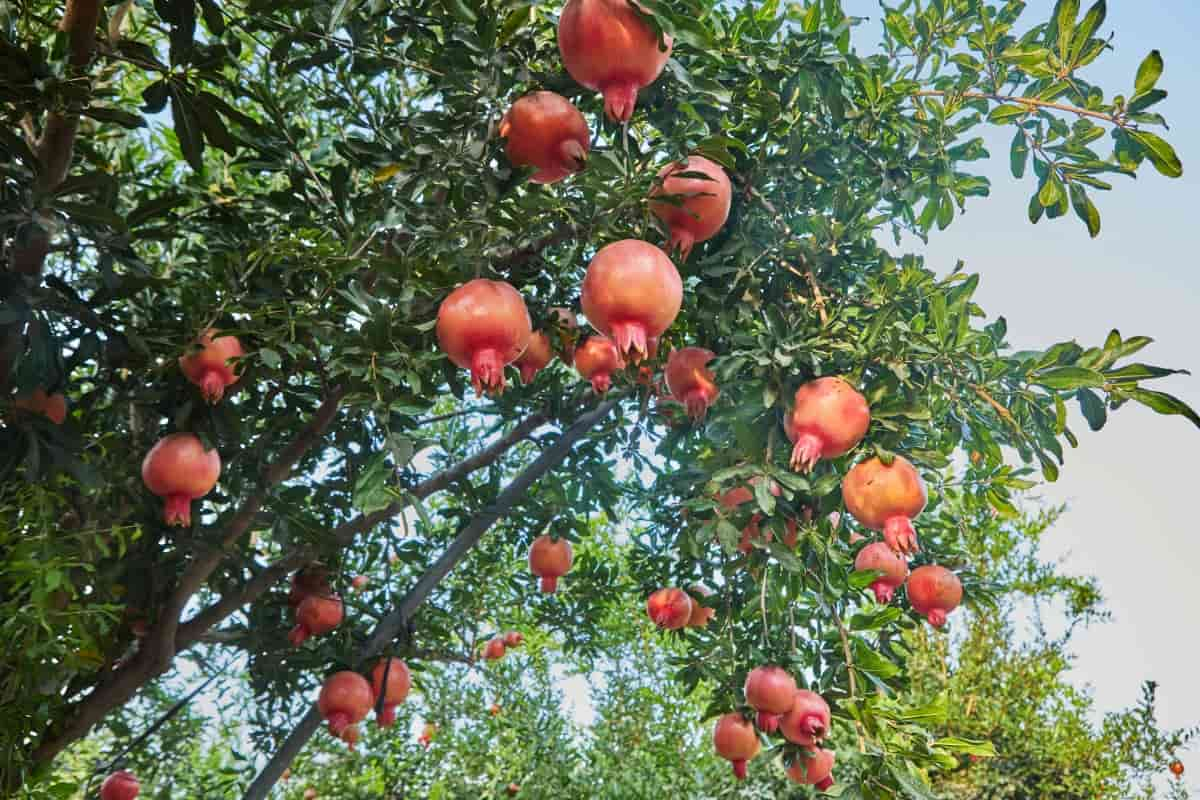Nestled in the southern charm of the United States, Georgia holds a reputation for its lush landscapes, vast agricultural endeavors, and fruit production. This state is blessed with many climates, ranging from the temperate zones in the north to the subtropical warmth of the south. These varied climates present a unique opportunity for cultivating a wide range of fruit trees.
This comprehensive guide will explore the tapestry of fruit cultivation possibilities, addressing queries such as the Easiest fruit trees to grow in Georgia, the Best fruits to grow in Georgia, nuances particular to South Georgia, and the optimal planting season. With such an abundance of choices, it can be challenging to discern the easiest fruit tree to grow in Georgia. This guide aims to elucidate that and much more.
Easiest and Best Fruit Trees to Grow in Georgia
Understanding the Georgia Climate for Fruit Tree Cultivation
Georgia’s geographical location gifts it with diverse climates. The state’s topography, with its Appalachian highlands in the north and coastal plains in the south, is pivotal in determining its weather patterns. Northern Georgia, graced with cooler temperatures, offers an ideal environment for fruits like apples and peaches, which require a certain number of chill hours. Conversely, South Georgia’s warmth is conducive for citrus fruits, which bask in the heat and do not need chilling periods.
Factors to Consider Before Planting Fruit Trees in Georgia
Stepping into the world of fruit tree cultivation requires more than just choosing a tree; it’s about understanding the environment in which it will grow. Georgia’s soil spectrum spans from the sandy realms in the southern part to the clay-dominated lands in the north. The soil’s pH, drainage capacity, and nutrient content can significantly influence a tree’s growth. Additionally, sunlight and water are integral. Some trees demand full sunlight, while others are content with partial shade. Water needs, too, vary, with certain trees requiring consistent moisture and others being more drought-resistant.
Best Fruit Trees for the Georgia Climate
Diving deep into Georgia’s horticultural offerings, we find many trees thriving here. Northern regions are renowned for their peaches, a fruit so integral to the state’s identity that Georgia is fondly known as the Peach State. Apples, particularly in the foothills of the Appalachians, yield bountifully. Moving southward, the citrus family, with its members like satsumas and kumquats, revel in the warmth, marking South Georgia as their preferred home.

Best Fruit Trees for Containers in Georgia
Urbanization and space constraints have given rise to the trend of container gardening. In this realm, Georgia doesn’t lag. Dwarf varieties of citrus trees, notably lemons, and oranges, are perfect for pot cultivation. Figs and pomegranates, with their contained growth patterns, make excellent container companions, allowing even those with limited space to experience the joy of fruit cultivation.
Easy-To-Grow Fruit Trees for Georgia Gardeners
Embarking on a gardening journey can be daunting. Yet, certain trees in Georgia offer a more forgiving experience for novices. Figs stand out prominently, demanding minimal attention once established while producing generously. Pears and plums, too, offer a relatively hassle-free cultivation journey, proving fruitful even for those with limited gardening experience.
In case you missed it: Best Flowers to Plant in Georgia: Native, Low-Maintenance, and Deer-Resistant

Top Fruit Trees for Georgia Backyards
The joy of plucking fruit from one’s backyard tree is unparalleled. In Georgia, many opt for peach trees, not just for their delicious yield but also for their fragrant blossoms that paint the backyard in hues of pink every spring. Apple trees, especially dwarf varieties, are another popular choice, offering both shade and produce. Cherries and nectarines are other commendable options that add to the backyard’s beauty and bounty.
In case you missed it: Best Time to Plant Okra in Georgia: Growing in Central, North, South, East, and West Regions

Low-Maintenance Fruit Trees for Georgia Landscapes
For those seeking beauty with minimal fuss, several trees fit the bill. Persimmons, with their vibrant orange fruits, stand resiliently against pests and diseases. Mulberries, though slightly unconventional, are robust and generous in their yield. With their vines and succulent fruits, Muscadine grapes also offer a low-maintenance choice.
Drought-Tolerant Fruit Trees for Georgia Gardens
Georgia’s summers, with their sizzling heat, necessitate the presence of drought-tolerant trees. Pomegranates are stalwarts in this category, thriving even when the mercury soars. With their deep-root systems, Figs manage to source water even when it’s scarce, making them ideal for the state’s warmer months.
In case you missed it: Best Container Plants for Georgia: A Comprehensive Guide

Disease-Resistant Fruit Trees for Georgia Orchards
Choosing disease-resistant varieties is crucial to ensure that fruit-bearing efforts aren’t thwarted. Southern-bred apple varieties, for instance, have been cultivated to resist common ailments that often plague the fruit. Similarly, certain strains of peach trees have been developed to be less susceptible to diseases, promising a more bountiful harvest.
Georgia Fruit Tree Planting Calendar
| Month | Suitable Trees for Planting |
| January | Apple, Peach |
| February | Peach, Plum |
| March | Cherry, Nectarine |
| April | Fig, Citrus varieties (South Georgia) |
| May | Persimmon, Pomegranate |
| June | – |
| July | – |
| August | Mulberry |
| September | Pear |
| October | Muscadine Grape |
| November | Citrus (In containers for South Georgia) |
| December | Apple, Peach |
Optimizing Soil Health for Fruit Trees in Georgia
Georgia’s soil offers a veritable canvas for fruit tree cultivation, but optimizing this soil can significantly boost tree health and fruit yield. For starters, it’s essential to understand the specific soil needs of your chosen tree. While sandy loams might be perfect for citrus trees, apples and peaches might demand something more substantial, like a clayey substrate.
Regular soil tests can reveal nutrient deficiencies, allowing you to amend the soil with organic matter, compost, or specific fertilizers. Additionally, maintaining proper soil pH is crucial. The majority of fruit trees thrive in slightly acidic to neutral soil conditions. pH adjustments can be made using lime or sulfur. Applying mulch at the tree base serves the dual purpose of maintaining soil moisture and suppressing weed growth. Furthermore, it helps regulate soil temperature, fostering an optimal growth environment for the trees.
Integrating Pest and Wildlife Management Techniques
Georgia’s diverse fauna is a double-edged sword for fruit growers. On one side, beneficial insects like bees aid in pollination, but on the other, pests and wildlife can pose significant threats to fruit yield. Aphids, fruit flies, and scale insects are common adversaries, and while chemical pesticides can offer a solution, they might harm beneficial insect populations.
Organic and biological controls, such as neem oil, beneficial nematodes, and ladybugs, present a more harmonious alternative. Protecting the orchard from larger wildlife, like deer and birds, might necessitate netting, fencing, or even scare tactics like reflective tapes and scarecrows. Adopting an integrated approach that combines physical barriers with organic treatments can ensure a healthy, bountiful harvest while maintaining ecological balance.
Conclusion
With its vibrant landscapes and varied climates, Georgia is a paradise for fruit tree enthusiasts. From understanding the intricate tapestry of its climate to diving deep into soil health and pest management, successful fruit cultivation in this state is a blend of knowledge, patience, and passion.
Whether you’re a seasoned horticulturist or a backyard gardener, the Peach State offers ample opportunities to experiment, learn, and, most importantly, reap the sweet rewards of your labor. Every Georgian backyard, orchard, or container can echo the promise of juicy, homegrown fruits with the right practices.
- Feed Your Flock for Less: Top 10 Tips to Save on Chicken Feed
- Ultimate Guide to Ossabaw Island Hog: Breeding, Raising, Diet, and Care
- Hatching Answers: The Top 10 Reasons Your Chickens Aren’t Laying Eggs
- Eggs and Economics: Breaking Down the Cost of Raising Backyard Chickens
- Defend Your Greens: Proven Methods to Keep Iguanas Out of Your Garden
- Ultimate Guide to Cinnamon Queen Chicken: A Comprehensive Guide for Beginners
- Ultimate Guide to California Tan Chicken: Breeding, Raising, Diet, Egg-Production and Care
- Ultimate Guide to Marsh Daisy Chicken: Breeding, Raising, Diet, and Care
- 10 Types of Chicken Farming Businesses You Can Start for Profits